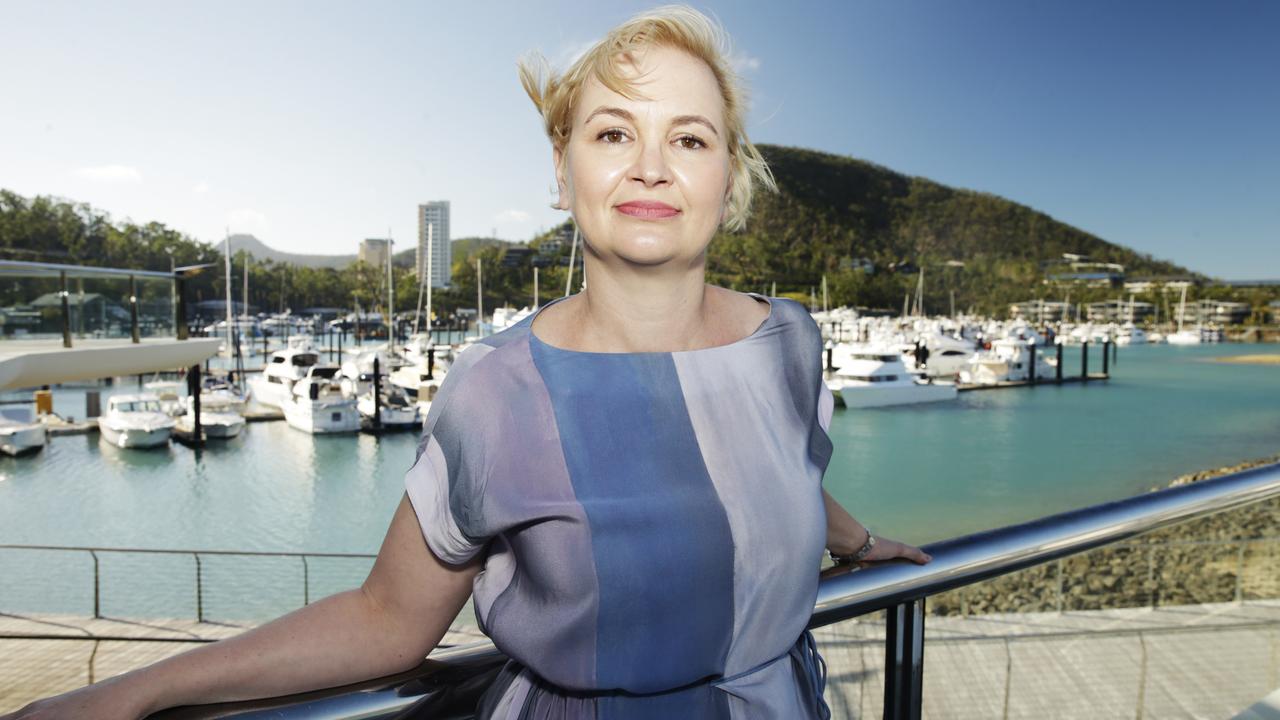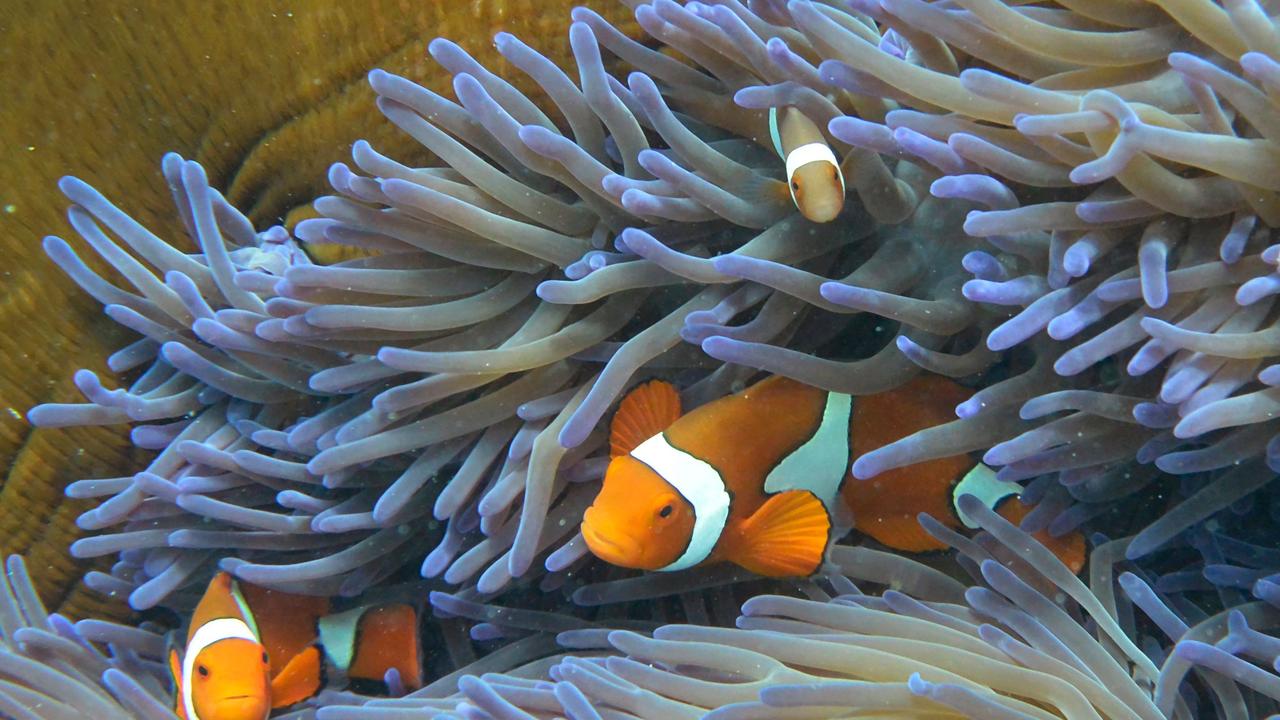Karl Stefanovic in stoush over support for Great Barrier Reef Foundation
KARL Stefanovic has been criticised by a fellow journalist over comments about an organisation amid a “developing scandal”.
ON THE surface, a huge $444 million grant to the Great Barrier Reef Foundation was a big win for the preservation of one of Australia’s most precious landmarks.
But alarm bells are going off for some in the industry as more details of the deal come to light.
The grant, announced in a joint media release on April 29, is the single largest investment for the reef.
While environment groups have welcomed the funding, questions have been raised about how the funding came about and why an organisation that previously only had six employees was chosen to deliver the project.
“What has happened here is completely unprecedented,” Labor frontbencher Tony Burke told ABC’s Insiders.
A parliamentary inquiry has now been set up to look into how such a small organisation managed to secure such a game-changing grant, and whether the foundation has the capacity to deliver the massive project.
Others have jumped to the foundation’s defence, including Today show host Karl Stefanovic.
He tweeted that the foundation “deserves and will use every cent in its arsenal to save the reef”.
“I’ve no doubt their research into reef DNA and conservation is the key. Let’s give them supporting space to prove it,” he added.
But his comments kicked off a backlash from others, including award-winning Channel 10 newsreader Hugh Riminton, who said Stefanovic should have mentioned the foundation was a Today show event sponsor.
Dear Karl, might it have been appropriate to mention that @GBRFoundation has been a TODAY show event sponsor? There is some strength in old principles. https://t.co/a7NxPZQgQU
— Hugh Riminton (@hughriminton) August 4, 2018
Stefanovic responded that he wasn’t aware of any funding from the foundation.
Labor senator Kristina Keneally also took issue with Stefanovic’s tweet, asking whether he had a conflict of interest as the foundation funded the show’s trip to Queensland last year.
Well, well, well. Let’s have a look at this. 👇 And then read my thread, please. #Reefgate https://t.co/JkRjP0pauQ
— Kristina Keneally (@KKeneally) August 4, 2018
However, Mark Calvert, Director of Morning Television at Nine, told news.com.au: “Not a single cent of GBRF funding was paid to The Today Show, Nine or Karl for our Reef broadcast on June 26 last year.
“It is correct to say they were named as a sponsor. With hindsight, ‘partner’ may have been a more accurate word.”
Mr Calvert said the foundation had not paid for any costs associated with the trip.
“We worked with them for their knowledge of the reef and their contacts in the area. Nothing sinister or commercial about that,” he said.
“It’s a great shame that our show and our host is now being used as a political ping pong ball.”
Law professor Tim Stephens also jumped in, noting that cutting greenhouse gas emissions was key to helping the reef but “the foundation has said it won’t advocate for this to happen”.
Labor leader Bill Shorten has described the funding as a “developing scandal”.
This is what’s going on.
‘IT’S LIKE WE’VE JUST WON LOTTO’
Prime Minister Malcolm Turnbull and Environment Minister Josh Frydenberg appear to have offered the money to foundation chair John Schuber at a meeting on April 9, according to its managing director, Anna Marsden.
She told a Senate inquiry that the only other person in attendance was environment and energy department secretary Finn Pratt. The money was included in the 2018-19 Budget, released one month later, in May.
Ms Marsden has since described getting the grant as “like we’ve just won lotto”.
When asked why other organisations weren’t given the opportunity to bid for the money, Mr Turnbull said: “The Great Barrier Reef Foundation is an outstanding organisation.
“This has been done completely transparently … it’s been considered by the Parliament and passed in legislation.
“There is nearly a 100-page agreement between the government and the foundation as to how the money will be invested and spent. It will all be subject to oversight, both by government and the Australian National Audit Office.
“So this is a wonderful investment in ensuring that we maintain the health of the Great Barrier Reef.”
But Labor’s Tony Burke described the process as “unprecedented”.
“A small foundation that employs six people walks into a meeting with the Prime Minister and having not asked for any money, walks away with a commitment of nearly half a billion dollars to do core work that previously had always been done by the department of the environment,” Mr Burke told Insiders.
Previously, The Reef Trust was the government body that provided investment in things such as improving water quality, restoring coastal ecosystem health and enhancing species protection.
Instead, the government has now given $444 million to the foundation to invest in projects to preserve the reef and to seek co-funding from private investors and philanthropists.
Mr Burke said fundraising activities could potentially allow the foundation to use taxpayer funds to “wine and dine” mining and banking executives on its chairman’s panel to seek money for its activities.

The foundation’s chairman’s panel includes the CEOs of companies such as BHP, Commonwealth Bank, Deloitte Australia, Lendlease and Deutsche Bank as well as representatives from Rio Tinto, Shell, AGL and Peabody Energy.
Confidentiality clauses may also stop taxpayers from ever finding out how fundraising money was spent and Mr Burke described the clauses as more strict than what applied to Cabinet papers, which are only confidential for 20 to 30 years.
“This is effectively the privatisation of a large chunk of the public service — but doing so in a way that just adds to administrative costs,” Mr Burke said.
Following the new system, if the government-funded CSIRO wanted to do specific research on the reef, it would now have to go to a private foundation, run by banking and mining executives, to ask permission to get taxpayer money.
There are also concerns about how effective the foundation has actually been in raising money.
On its website, the foundation suggests it has raised $90 million since it was created almost 20 years ago. But a Labor analysis of the foundation’s annual reports suggest the amount is closer to $44 million, or $25 million if you don’t include membership fees paid by the chairman’s panel.
“Neither the foundation nor the government has any evidence to back up the claim that it has a terrific capacity to leverage private donations from public money,” Senator Keneally told Fairfax Media.
LINKS TO FOSSIL FUEL COMPANIES
The Australian Conservation Foundation is one of many organisations who have concerns about the funding.
“By giving the foundation so much money, you are basically privatising a government department,” ACF economist Matt Rose told news.com.au.
“We don’t have an issue with the foundation in itself but we don’t think it should be given so much money.”
The grant will make the foundation the biggest funder of reef science, something that concerns the ACF, given the organisation’s links to fossil fuel companies.
“The links to companies such as Peabody Energy, which has funded climate denial groups in the past, doesn’t sit comfortably with us,” he said.
The foundation’s largest donors in recent times have been mining companies BHP and Rio Tinto as well as Google, Lendlease, Boeing and Orica, which is the largest provider of explosives to mining and other companies.
The organisation’s founders have also been controversial.
The late Queensland shale oil developer, Sir Ian McFarlane was one of the four men who founded the not-for-profit group in 1999. The others were the prominent public servant and founding director of the Great Barrier Reef Marine Park Authority, Sir Sydney Schubert; former James Hardie executive and the last of his family to run the company now known for its dealings with asbestos, John B Reid AO; and current foundation chair Dr John Schubert AO.
Mr Rose said the biggest threat to the reef was climate change and there were concerns this wouldn’t be addressed adequately by the foundation, and it would lead to “greenwashing”.
“It will allow fossil fuel companies to be linked to a reef charity, the biggest funder of reef science, when climate change is actually the largest threat to the reef,” he said.

The foundation itself has acknowledged lobbying for climate change action was not in its “strategic view” at the moment, nor was stopping new coal projects or wholesale land clearing.
“What (Australians) desperately want to hear is: what are the solutions? What are the projects that can be enabled that give hope to the reef?” Ms Marsden told the parliamentary inquiry.
“That’s where we find we can fill a strategic gap and we can help the Australian community feel that Australia is rising to the occasion to save this treasure.”
When asked whether the foundation would be willing to lobby governments for policies to reduce emissions reduction, land clearing and stopping coalmines, Ms Marsden said: “It’s absolutely not in our strategic view at the moment, but we will always do what the reef needs us to do.”
So far the foundation says the $444 million will be distributed over several years and will be used for improving water quality, supporting reef resilience, fighting crown-of-thorns starfish, coastal clean-up days and reef monitoring.
But the Australian Conservation Foundation is also worried the foundation’s small size will make it hard to grow quick enough to deliver most of the funds before 2020.
The Federal Government has pledged to spend $716 million by 2020 on its Reef 2050 plan to avoid the reef being listed as “in danger” by the World Heritage Committee.
Only $107.2 million had been allocated before the 2018-19 Budget, now most of the rest of the funding has been given to the foundation.
The foundation says it has received all the money but will spend it over the next few years until 2023-24.




